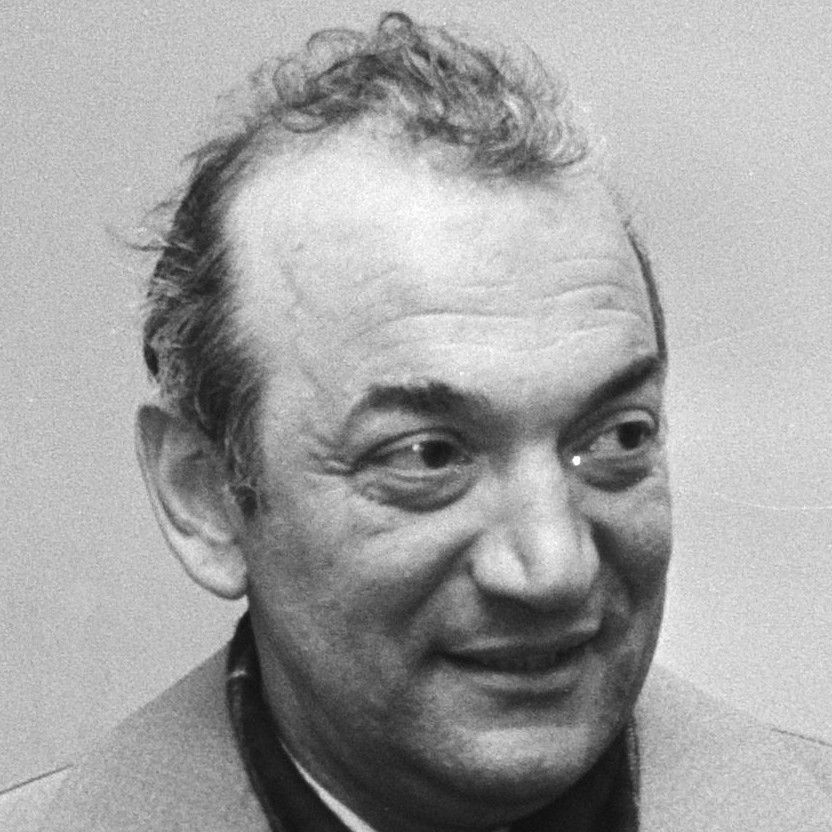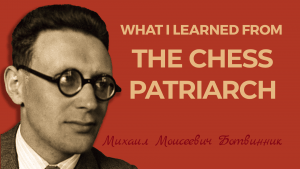
Mikhail Tal's Last Classical Game
Chess.com is excited to welcome GM Vladimir Akopian as an author. In his first article, he shares the story of his game with Mikhail Tal, Tal's last classical game.
Dear chess friends, I would like to share with you the analysis of my game with the eighth world champion, Mikhail Tal. I felt that it was high time to finally put an end to all speculations around this game, and tell you how it really happened. After all, I was one of the players, and my rival cannot share the story for obvious reasons. The game was destined to become well-known in chess history, but let's start from the very beginning.
The game took place in Barcelona in 1992. There had been a thrilling story prior to our duel, so before getting to the analysis, I would like to tell you about the events preceding this memorable game.
So, this was my first major round-robin tournament, and being a world champion under 20, I wanted to perform to the best of my abilities. I was doing well and shared first place two games before the end of the event. In the last two rounds, I had to play with White against Viktor Korchnoi and then with Black against Tal. Those were my first games against both chess giants.
On the eve of my game with Korchnoi, Tal offered me a draw through the translator of the tournament. My answer was that I couldn't make a decision right away since my perspective depended on my game with Korchnoi. However, I missed a not difficult win against Korchnoi, and thus had to decide what to do next.

I have to say that I was always against making short draws, and besides, I had a unique opportunity to play against Mikhail Tal himself! Here, I recall a similar episode when I faced another famous player, Vladimir Bagirov, in Capelle-la-Grande in 1999.
I had the black pieces against him in the first round. While making his 13th move Bagirov, offered me a draw. Again, like here with Tal, I refused—not out of my confidence that I'd crush them, but I wanted to play a worthy game against an opponent who I probably would not play again. Sadly, that happened to be the case.
So, back to our game with Tal, I decided to play at full strength in the last round and asked the translator to inform Tal about my decision. I want to point out that I had no personal contacts with Tal himself, and only right before the game, Mikhail Nehemievich caught me on the street and without referring to previous negotiations, asked.
"Volodya, what are your plans for today's game?"
"I'd like to play with you, Mikhail Nehemievich," I answered.
I'd like to play with you, Mikhail Nehemievich.
"No problem," Tal answered, and we headed to the tournament hall.
As you see, everything was pretty simple. So how did this game become so famous that it occasionally pops up in the press, flavored with speculation and idle gossip?
For instance, the distorted version of this story was described by Maxim Dlugy and Ivan Sokolov in their latest books, and even people who have no idea about what happened in reality still take that fake for granted. In fact, this whole fiction goes back to a distorted interpretation in the very first of Genna Sosonko's articles on this subject. I don't know if he was misinformed or if he just decided to embellish the story for his own amusement, but this is how such myth was created! In his essay "My Misha" in "New In Chess," written shortly after Tal's death, there is the following quote.
"In the last game, assuming that it would be a quick draw, he played 3.Bb5 in the Sicilian, offered a draw and received a refusal. In a lost position, already under attack, his young opponent himself offered a draw. That was the last tournament game won by Misha."

There are only three truthful facts in this quote. It was indeed the last round; Tal did play 3.Bb5, and it was the last classical game he won. All the rest is fiction. You already know that Tal couldn't assume that there would be a quick draw since he should have known that on the previous day, as well as five minutes before the start of the game, when we spoke at the entrance. That's why he did not offer me a draw for the second time after his third move. And as for the "lost position" and "already under attack," we shall see it right now analyzing this memorable game.
After the game, we quickly discussed some variations blindfold and then analyzed his sixth game of the world championship match with Botvinnik, which always amazed me. "Nf4 is brilliant!" I told him. "Well, yeah, if it's correct," Tal replied.
Everyone was in high spirits, and there was no tension concerning our game. If fact, we got along pretty well, as you can guess from the story.
In the end, I want to admit that I'm sincerely glad that I managed to play a real game against Tal and did not go for, as Bobby Fischer would put it, a "prearranged" draw. Otherwise, I wouldn't be able to share this memorable episode with you now.
The only regret I have is that I played this great champion only once in my life.



